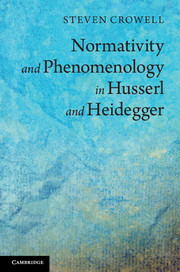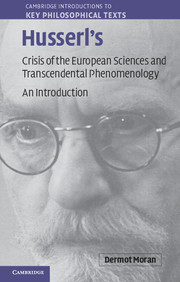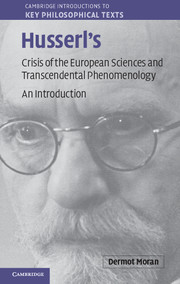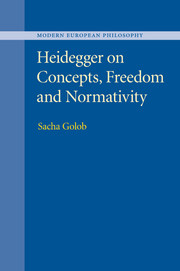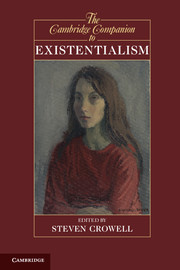Normativity and Phenomenology in Husserl and Heidegger
Steven Crowell has been for many years a leading voice in debates on twentieth-century European philosophy. This volume presents thirteen recent essays that together provide a systematic account of the relation between meaningful experience (intentionality) and responsiveness to norms. They argue for a new understanding of the philosophical importance of phenomenology, taking the work of Husserl and Heidegger as exemplary, and introducing a conception of phenomenology broad enough to encompass the practices of both philosophers. Crowell discusses Husserl's analyses of first-person authority, the semantics of conscious experience, the structure of perceptual content, and the embodied subject, and shows how Heidegger's interpretation of the self addresses problems in Husserl's approach to the normative structure of meaning. His volume will be valuable for upper-level students and scholars interested in phenomenological approaches to philosophical questions in both the European and the analytic traditions.
- Proposes a new understanding of phenomenology as a method for exploring the normative structure of our experience
- Provides a new interpretation of the relation between Husserl and Heidegger
- Develops the themes of phenomenology and normativity in connection with debates in analytic philosophy
Reviews & endorsements
"Steven Crowell’s Normativity and Phenomenology in Husserl and Heidegger is a terrific book. Read individually, the chapters offer a set of sensitive and original readings of Husserl and the early Heidegger. Taken as a whole the book gives us even more; an original argument that Heidegger, building upon and criticizing the work of Husserl, went a long way towards revealing the necessary conditions on intentionality by displaying the necessary conditions on an agent whose acts are normatively responsive and whose 'being' is normatively responsible."
Mark B. Okrent, Bates College
"Crowell’s work combines careful attention to the historical detail with a concern both to express the ideas involved as clearly as possible, and to demonstrate their wider significance. His discussions of phenomenology and authenticity, for example, clearly make a case for their importance for our broader understanding of intentionality, action and ethics. This book is a lucid, rigorous and ambitious piece of work that sheds light on our philosophical past and present."
Denis McManus, University of Southampton
"… this series of essays present[s] a fascinating interpretation of key themes in Husserl and Heidegger … of interest to anyone working through the areas of subjectivity, normativity, and the philosophy of action."
Symposium: Canadian Journal of Continental Philosophy
Product details
June 2013Paperback
9781107682559
334 pages
229 × 152 × 17 mm
0.57kg
Available
Table of Contents
- Introduction
- Part I. Transcendental Philosophy, Phenomenology, and Normativity:
- 1. Making meaning thematic
- 2. Husserlian phenomenology
- 3. The matter and method of philosophy
- Part II. Husserl on Consciousness and Intentionality:
- 4. The first-person character of philosophical knowledge
- 5. Phenomenological immanence, normativity, and semantic externalism
- 6. The normative in perception
- 7. Husserl's subjectivism and the philosophy of mind
- Part III. Heidegger, Care, and Reason:
- 8. Subjectivity: locating the first-person in being and time
- 9. Conscience and reason
- 10. Being answerable: reason-giving and the ontological meaning of discourse
- Part IV. Phenomenology and Practical Philosophy:
- 11. The existential sources of normativity
- 12. Husserl and Heidegger on the intentionality of action
- 13. Heidegger on practical reasoning, agency, and morality.

